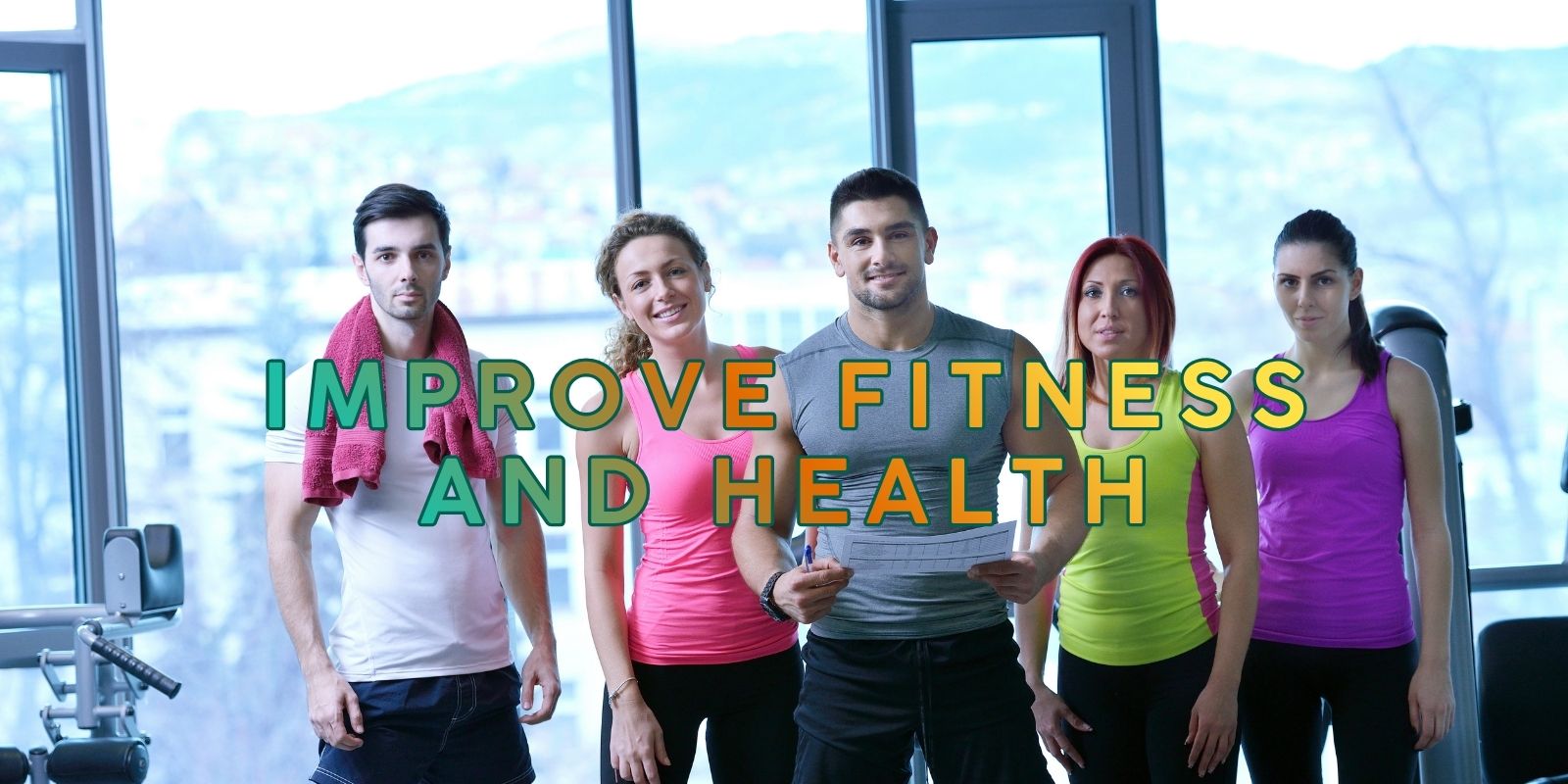How Hypnosis Can Improve Fitness and Health
Improve Fitness And Health: Hypnosis is an evidence-informed method many practitioners use to support lasting change in thoughts, habits, and performance. When applied thoughtfully, hypnotic techniques help align subconscious motivations with conscious goals, making exercise, healthy eating, and recovery feel less like a battle and more like a natural part of life. In this guide we’ll explore how hypnosis supports fitness, the mechanisms behind behavioral change, sports-specific techniques, and practical ways to make gains that last.
Table of Contents – Improve Fitness and Health
- What Is Hypnosis?
- How Hypnosis Supports Fitness
- Changing Behavioural Patterns
- Improve Fitness and Health
- Permanent Results and Habit Formation
- The Powerful Benefits of Good Training
- Hypnosis Techniques That Improve Sports Performance
- Key Takeaways
- FAQs
- Your Training Mindset — Next Steps

What Is Hypnosis?
Hypnosis is a focused state of awareness in which a person becomes more open to suggestion and able to access subconscious resources. It’s not sleep or mind control; rather, it’s a form of deep relaxation combined with heightened attention that allows the practitioner to work directly with the mental patterns that drive behavior. During hypnosis, imagery, suggestion, and guided mental rehearsal are used to reframe automatic responses and create new, more helpful associations.
Scientific literature supports that hypnosis can alter perception, pain responses, and emotional reactivity, which makes it relevant for fitness and performance. For practical readers, this means hypnosis may help lower the internal friction that keeps people from training consistently, and it can also enhance concentration, recovery and confidence during competition. If you want an accessible introduction on hypnosis fundamentals, our internal resource — the Beginner’s Guide to Hypnosis — explains what to expect in a first session.
Most effective programs combine hypnosis with evidence-based coaching and structured training. Hypnosis alone is rarely a silver bullet, but when integrated into a wider plan it becomes a powerful psychological tool that supports sustainable change and peak performance.
How Hypnosis Supports Fitness
Hypnosis helps by reshaping the subconscious associations that drive behavior. Many people know intellectually they should exercise and eat well, yet deeper beliefs, emotional triggers, or learned habits sabotage their best intentions. Hypnotic work targets those hidden drivers by installing new mental templates—so the urge to move, to choose nourishing food, or to rest when needed becomes a natural response instead of a forced discipline.
Practically speaking, a therapist might use imagery to make exercise feel energizing rather than stressful, or post-hypnotic suggestions to cue healthy choices at critical moments. This makes the desired action easier to access in the moment. Improve Fitness And Health: Evidence and reputable resources such as the self-hypnosis summaries on Healthline describe how repeated practice deepens these changes and supports long-term habit formation.
Hypnosis also reduces cognitive load during planning and execution. When your subconscious already supports the goal, conscious willpower is freed up for strategy and technique. This is why athletes and busy professionals alike use hypnosis to make training consistent and meaningful without it becoming an additional stressor.
Changing Behavioral Patterns
Behavioral change is rarely linear; it usually involves repeated attempts, relapses, and small wins. Hypnosis reframes this process by addressing the emotional and automatic responses beneath the behavior. For example, if stress leads to skipping workouts or emotional eating, hypnotic suggestions can create new calming scripts that interrupt that chain and allow a healthier response to take place.
Rather than nagging the conscious mind to “try harder,” hypnosis communicates with the parts of your mind that manage habit and reward. By changing how you feel about the act of exercising—presenting it as energizing, restorative, or personally meaningful—the subconscious will begin to generate motivation spontaneously. This is the difference between forcing habits and cultivating intrinsic desire.
At the same time, hypnosis can strengthen accountability mechanisms. People who combine hypnotherapy with coaching or structured programs often find they maintain consistency because their internal landscape has shifted—choices align with identity and values rather than being constant internal struggles.
Improve Fitness and Health
Hypnosis can amplify many elements of a fitness plan: motivation, pain tolerance, recovery, and consistency. When the mind supports change, small daily actions become easier to sustain. Practically, regular hypnotic reinforcement encourages better food choices, increased daily activity, and adherence to training plans. Over weeks and months this compounds into measurable fitness gains and improved overall health.
Hypnosis can also be used to manage stress and sleep—two pillars of recovery that directly affect performance and wellbeing. Reduced mental arousal at night, guided relaxation, and reframed beliefs about rest lead to deeper sleep and better regeneration. Improve Fitness And Health: Improved sleep quality translates directly into better training sessions and more resilient health.
For anyone skeptical about practical guidance, there are evidence-informed coaching resources on the intersection of mindset and fitness; one helpful perspective on mindset-driven fitness approaches can be found at Inspired to Change, which explores motivation-focused strategies that pair well with hypnotic work.
Permanent Results and Habit Formation
Frequent, focused hypnotherapy can produce long-lasting shifts by repeatedly reinforcing new neural pathways. The goal is not a one-off “fix” but gradual integration—each session strengthens the neural patterns that support your desired habits. Over time these patterns become the default way your mind solves challenges, so healthy choices feel automatic rather than effortful.
It’s important to understand permanence is supported by maintenance: self-hypnosis, periodic refresh sessions, and consistent behavior. People who combine therapy with self-practice and coaching maintain gains longer because they actively reinforce new templates in daily life. Our internal program descriptions, such as the clinical approach in Clinical Hypnotherapy & NLP, explain how structured sequences create deeper change.
Finally, hypnosis that targets identity—how you see yourself—often produces the most durable outcomes. When you genuinely adopt the identity of a healthy, active person, behaviors naturally follow. That identity shift is the hallmark of permanent change.
The Powerful Benefits of Good Training
There are numerous physical and mental benefits to consistent training: better sleep, elevated energy, improved immune function, and mood regulation. Each training session adds to your resilience, making daily life easier and more enjoyable. Hypnosis supports these benefits by increasing motivation and reducing barriers to consistent movement.
Regular exercise strengthens your immune response, helping you recover faster from illness and maintain a healthier baseline. Hypnosis contributes by improving sleep and stress management, both of which are crucial for immune function. Improve Fitness And Health: When your mind and body are aligned, the physical outcomes of training become more pronounced and sustainable.
Emotionally, training reduces anxiety and depression through neurochemical and psychosocial mechanisms. Hypnosis accelerates emotional regulation, making it easier to use exercise as a tool for mood balance rather than a source of guilt or obligation. Over time this synergistic approach helps you build a life where movement is integrated, restorative, and pleasurable.
Hypnosis Techniques That Improve Sports Performance
Ideomotor training enables subtle mental rehearsal that reinforces muscle memory without physical strain. In this technique the athlete mentally rehearses the exact sensations of an ideal movement while in a relaxed state, producing tiny neuromuscular activations that strengthen neural pathways. Over time, these micro-patterns support smoother and more reliable physical execution when the body is required to perform.
Hypnotic time distortion helps athletes feel as though they have more time to process and respond, which improves precision under pressure. By slowing perceived time during critical moments, the mind can sequence complex actions more clearly. This mental elongation is useful for high-speed sports where reaction timing and split-second decisions determine outcomes.
Regression therapy addresses deep, performance-limiting blocks by safely revisiting past events that created fear or hesitation. When athletes reprocess these memories in a controlled and calm state, the emotional charge reduces and the old trigger loses power. This technique is particularly effective for competitors who carry a single negative incident that repeatedly undermines confidence.
Anchoring success states gives athletes a portable cue to trigger peak performance. Under hypnosis, a specific gesture, word, or breath becomes linked to a calm, focused, high-performing state. Improve Fitness And Health: When used before competition or key moments, the anchor reliably brings the athlete into that resourceful state, increasing consistency and reducing the influence of nerves.
Key Takeaways
- Hypnosis accesses subconscious patterns to make fitness habits more automatic and enjoyable.
- When combined with structured training, hypnosis improves motivation, recovery, and performance consistency.
- Techniques like anchoring, future pacing, and post-hypnotic suggestions are practical tools for athletes.
- Self-hypnosis and follow-up practice are essential for long-term, permanent change.
- Hypnosis works best as part of an integrated plan that includes coaching, programming, and healthy lifestyle choices.
FAQs – Improve Fitness and Health
Can hypnosis actually make me enjoy exercise?
Yes. Hypnosis reframes how your subconscious interprets exercise, transforming it from a chore into something energising and satisfying. This change in interpretation often results in genuine enjoyment and sustained motivation.
How many sessions will I need to see results?
Results vary. Some people notice immediate shifts in motivation after a few sessions, while others benefit from a structured program over several weeks. Consistency with sessions and follow-up self-hypnosis practice speeds progress.
Is hypnosis safe for athletes and non-athletes?
Hypnosis is safe when delivered by a trained practitioner. It is non-invasive and widely used in both clinical and performance settings to support mental health, habit change, and peak performance.
Can I use self-hypnosis to reinforce training goals?
Absolutely. Self-hypnosis empowers you to rehearse suggestions and maintain momentum between sessions. Learning simple self-hypnosis tools helps sustain long-term change and keeps motivation aligned with daily actions.
Does hypnosis replace physical training?
No. Hypnosis complements physical training by improving mental factors such as motivation, focus, and recovery. It enhances the effectiveness of physical work but does not substitute for consistent, properly programmed exercise.
Your Training Mindset — Next Steps
Improve Fitness And Health: Hypnosis is a practical, science-aligned method for anyone committed to improving health, fitness, or athletic performance. It makes the invisible work visible—reshaping motivation, reframing resistance, and unlocking mental states that accelerate progress. If you want to explore hypnosis for your training goals, consider a combination of professional sessions and daily self-practice to embed new patterns.
For more detailed guidance on clinical approaches and support options, see our in-depth page on Clinical Hypnotherapy & NLP, or learn about overcoming related behavioral issues through hypnotherapy in The Fight Against Addictions. If you’d like a practical primer to start practicing on your own, our Beginner’s Guide to Hypnosis offers step-by-step tips for self-hypnosis and grounding routines.
Ready to take the next step? Start small, be consistent, and let your subconscious become your training partner—one calm, focused session at a time.
